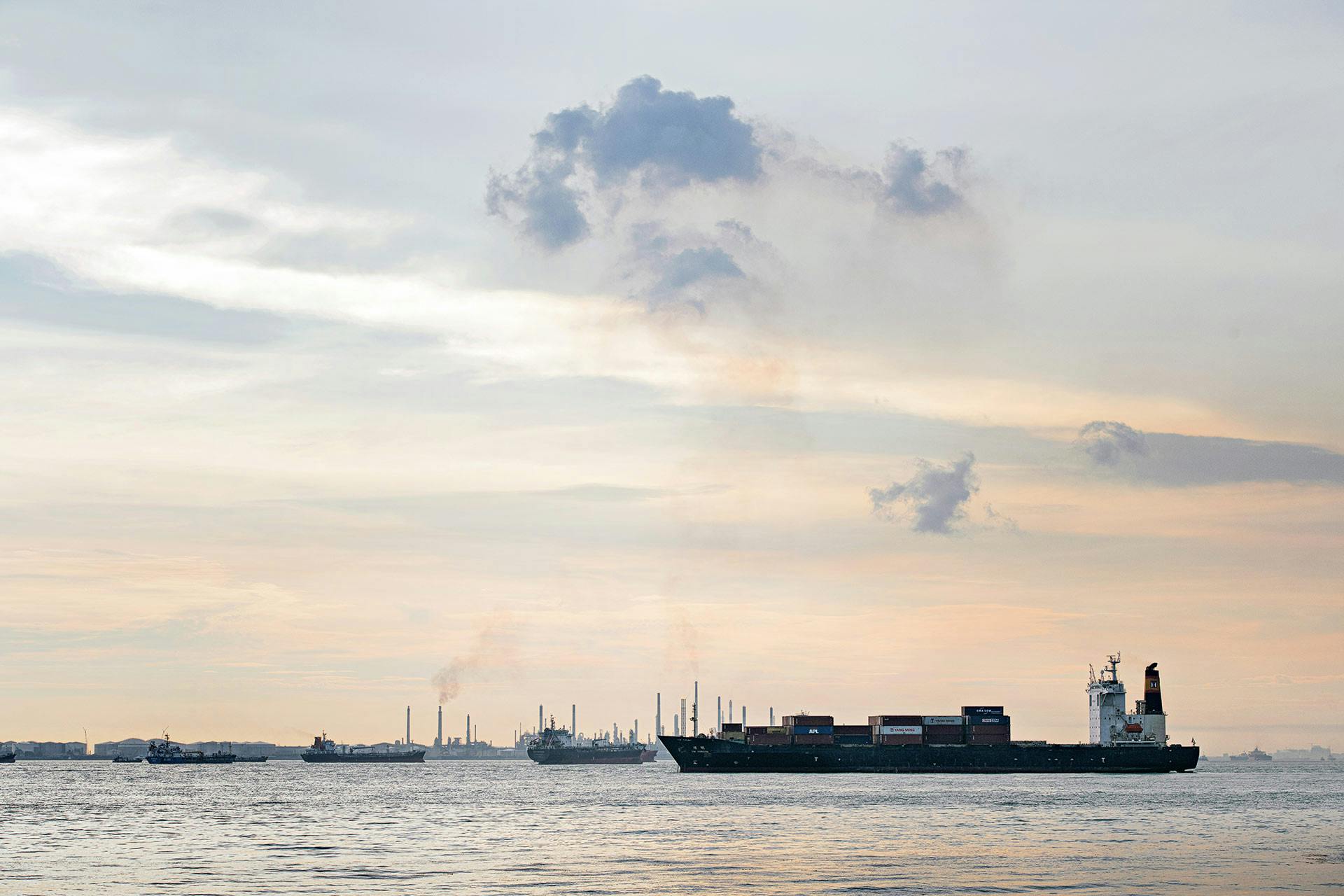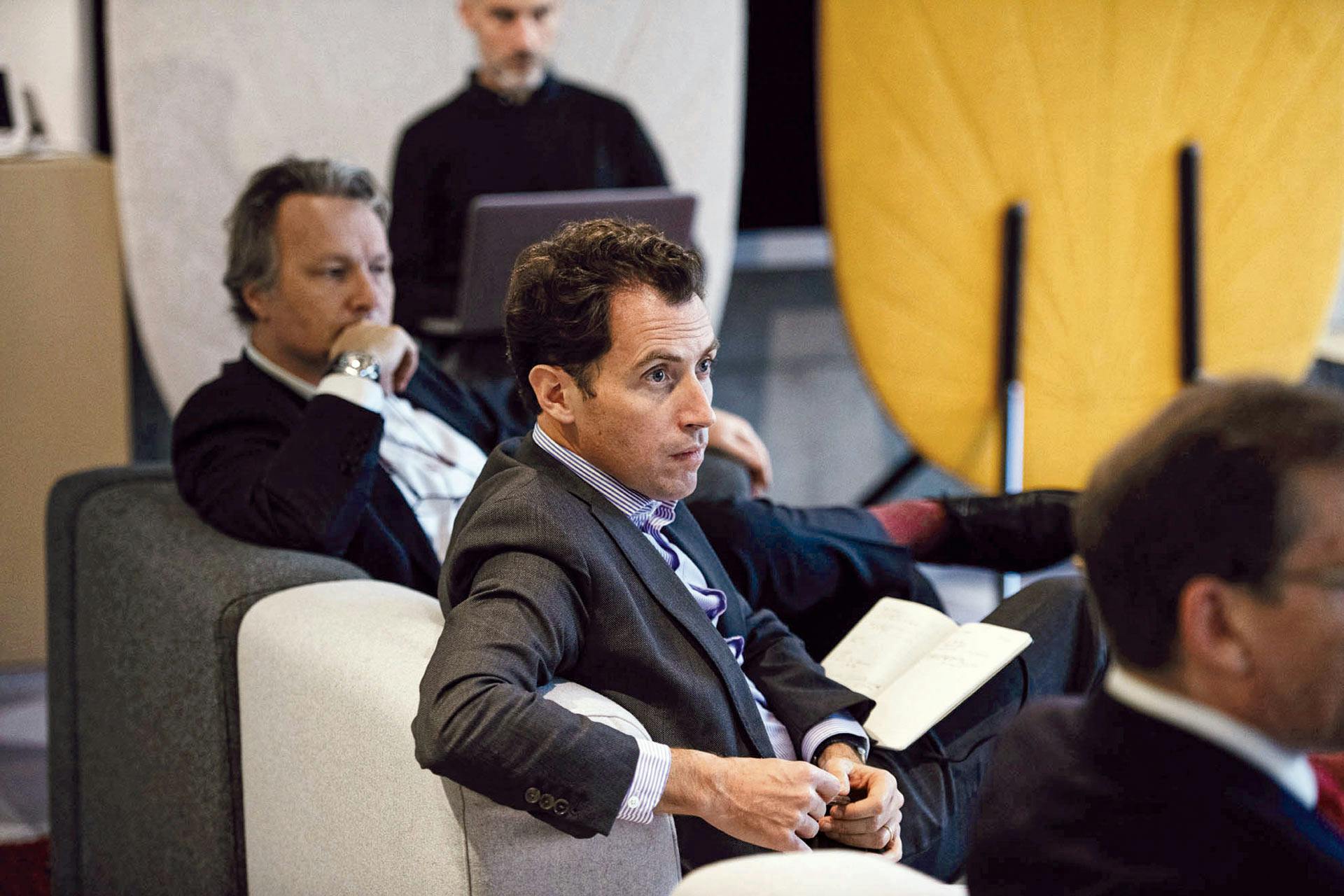
June 30, 2020
Companies in the face of risk transformation
Through its new AXA XL division, the Group is bringing complete solutions to the wide variety of challenges faced by companies. In addition to products and services, companies increasingly expect their insurer to provide support well beyond risk management, as a partner in their growth and transformation.
4 minutes
If there is one conviction shared by these AXA XL experts, it is that the more businesses remain in a “fog,” the more they will be tempted to stay where they are. “Faced with an increasing number of poorly identified risks or a context of strong uncertainty, corporate leaders tend to become more cautious, avoiding risky investments to the detriment of their long-term development,” explains Bruno Laval, Chief Distribution Officer of the Asia & Europe BU at AXA XL. Yet, new digital technologies, growing automation, fast changing value chains and the shifting needs of customers and employees all call for action.
Which risks impact companies most?
Listening to businesses
A tailored approach
How can an insurer help companies manage their risks to boldly plan for the future? “Unfortunately, there’s no single answer to this question,” replies Corinne Vitrac, CEO of AXA XL Risk Consulting. “That’s why we’re working with our client companies to understand their businesses, define and assess their risks, and advise them on the best ways to manage these risks.”
This tailored approach has proven its worth, particularly for managing natural risks, where modeling brings precise, tailored information. “For example, our engineering teams visualize companies’ exposure to climate risks site by site on maps enhanced with global field observations and our very strong expertise in data mining,” explains Corinne Vitrac. This risk mapping exercise provides corporate leaders with the objective data needed to take strategic decisions.
This risk assessment tailored to each company’s unique situation has proven useful for societal and political risks. “Take a company that wants to finance the construction of a dam in an emerging country. The local political instability often found in these markets makes this type of major project extremely hazardous. We assess and cover the potential losses that would occur if a project were cancelled by a government decision,” explains Julien Guénot, Country Manager France for AXA XL.
For companies facing particularly complex situations, where technology is crucial, AXA has designed Cube. It’s an incubation space in co-creation with our customers to design and develop, in six weeks, innovative risk management solutions, leading to a pilot project.


Co-creating the best risk management solutions
Identifying and pricing new risks, gathering and analyzing a large volume of data, developing a tailored approach to adapt to the immense variety of corporate profiles... To support its customers, AXA XL has adapted its ways of working, developing new tools and services built on the most innovative technologies. This new approach has led the division to go well beyond its insurer-payer role to enable companies to operate in better conditions. “For example, with expert partners such as Contguard and Parsyl, we enable cargo carriers to know where their loads are at any time, and whether there are any changes in temperature or shocks along the way. This is essential for transporting fragile or valuable goods and enables our customers to operate with greater peace of mind,” explained Matthieu Daubin, EMEA Head of Marine at AXA XL.
Supporting risk management teams
AXA XL’s expertise also enables the division to be a go-to partner for risk managers, who now play a critical role in medium to large companies. “With our risk scanning platform, which collects data on remote sites and uses artificial intelligence, it is now possible for a risk engineering team to analyze millions of sites, compared to barely 50 in the past,” adds Corinne Vitrac.

David Rios
Holder of the AXA Research Fund Chair in Adversarial Risk Analysis
In the face of growing intentional threats, adversarial risk analysis reinforces companies’ capacity for anticipation.
The Group also helps risk managers to analyze the evolution of certain risks. “Cybercrime is difficult to understand since it’s constantly changing. We provide customers with information on the dark web, trends and types of attacks so they can adapt their practices,” explains Sergio Pierro, a Cyber and Professional Indemnity Underwriter for AXA XL. This risk expertise is particularly useful for new economy, autonomy and technology (NEAT) companies. “Platform economy companies’ products and models are rapidly changing. Knowing that we provide support to their risk management teams enables companies to invest in disruptive technologies (AI, self-driving vehicles, blockchain and quantum cryptography) with greater confidence,” points out Daniel Maurer, Head of International Casualty at AXA XL.
A compass for responsible choices
In addition to offering greater confidence in the future, insurance can empower companies to make more sustainable choices. Risk assessment naturally integrates immediate threats, as well as longer- term risks, such as the risks to health, biodiversity and climate change. This information is in demand among AXA XL customers, some of which intend to join the Task Force on Climate-related Financial Disclosures (TFCD)*. AXA’s active participation in TFCD has led to the publication of a pioneering report**. In this way, the Group’s expertise enables companies to integrate tangible data into their decision-making processes.
*TFCD is intended to improve climate report on risk assessment and performance.
**AXA’s 2019 Climate Report, available on axa.com





